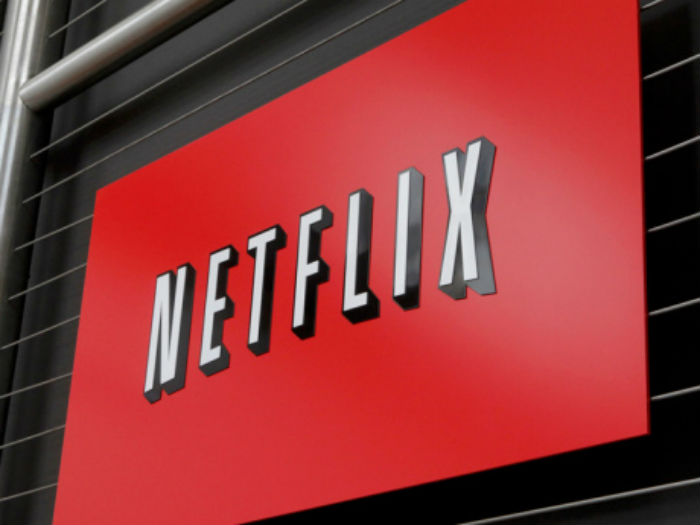We’re often blind to the extent of the transformations that happen right before our eyes. Because things change incrementally, it’s only when we stop and think about what has changed that we realize that things have shifted so far from what they used to be.
This is the case with technology, and specifically the internet. The first iPhone came out in only 2007, yet today, that piece of hardware — and others — dominate our lifestyles. Is there an aspect of modern life that doesn’t incorporate the internet in some way? There’s none that we can think of. And this is especially true of entertainment.
In this blog, we’re going to take a look at just some of the ways in which tech has transformed the entertainment experience, from how we consume it to how it is produced. Let’s dive in.

Opening Up Possibilities
The rapid rise of technology and the internet has fundamentally changed the landscape of the entertainment sector. This is the case when it comes to activities that historically took place exclusively in the real world. For instance, in the pre-digital era, people would typically have to travel to a casino to play classic card games. In the post-digital age, they can do so right from the comfort of their own home — and they’re no longer confined to one option, but hundreds. There are so many online casinos, in fact, that many casinos offer bonuses to entice players. And that’s not something that happened in the olden days!
Shorter Content
There hasn’t been any conclusive evidence regarding whether technology has an impact on the attention span of users. The data seems to suggest that this is the case, but we’ll probably have to wait a little longer before we find out for sure. But even if the tech doesn’t rewire our brains and make us more likely to be distracted, entertainment producers certainly act as it does. The success of TikTok, Instagram, and other image-based social media sites is related to the shortness of the content that they host. TikTok videos can be seconds long. The average YouTube video is around 12 minutes long. Compare that with an old-school way of occupying your time, such as, say, reading a book, and there’s no denying that there’s a “shorter is better” theme developing.
Self-Generated Entertainment
One of the more exciting elements of the rise of technology is how it has allowed amateurs to produce content. Of course, people have been entertaining themselves and creating content — in some form or another — forever, but now, they can share their content with the world.
This sounds like a subtle shift, but it’s actually huge. For the majority of the 20th century, the mainstream entertainment devices — television, radio — were passive machines. They didn’t ask anything from the audience other than their attention. In the 21st century, entertainment devices — smartphones, laptops — allow users to consume and produce. And most of them are producing, to various degrees.
The possibility to create channels and produce content has changed the process of how people make it to the big leagues. In the past, a budding entertainer would have to work their way through various levels of bureaucracy. Today, they can get their content seen by an audience without engaging with anybody in a suit. And if the audience likes the content enough, then the producer will find that the suits are coming to them. It’s a welcome shift that pushes access to opportunity in the right direction.

Infinite Choice
Imagine if you were in 1960. On the television, you would have a handful of channels. If you didn’t like what was on, then tough. If you were not at home when the show was on, then tough. And if you wanted to play a video game, then too bad, they haven’t been invented yet. We can think of the internet in many ways, but perhaps the most obvious way to think of it is as an entertainment monster. It’s possible to watch more or less any movie or television within seconds.
And you don’t just have an infinite choice when it comes to deciding what you watch. You can also decide where you watch it and at what time. The idea of watching a prime-time American television show from the 1970s on a beach in Thailand in 2021 would sound implausible to most people in history. Yet you could do that now without having to think about it.
Data-Driven Movies and TV Shows
Technology has also allowed for a pretty advanced feedback loop that helps production houses decide what content to make and how. Of course, there’s always been an element of audience input when it comes to making movies and TV shows. But nowhere close to the level that we see in the modern age.
There’s just so much data available. Let’s think about Netflix, who, despite growing competition, can probably be considered the streaming King because of the quality and extent of their output. They consistently deliver what people want because they have so much information about how people are interacting with their earlier content. They know if the majority of viewers give up on a show after twenty minutes. They know when people stick it out.
This could be a bad thing because it pushes experimental and slow-burning shows to the side in favor of shows that get positive feedback straight away. But actually, this doesn’t seem to have happened. Netflix’s data busters are so advanced that they stick with shows that other production houses might have given up on in the pre-internet era.
The Future
What does the future hold for entertainment? More interaction, more VR, more choice would be the sensible guess, especially since the broader trend is towards individual rather than collective entertainment. One thing we can say is that we can be reasonably sure that people will not be bored. If there’s one thing that the internet has shown us, it’s that people’s capacity for entertainment is never-ending.
